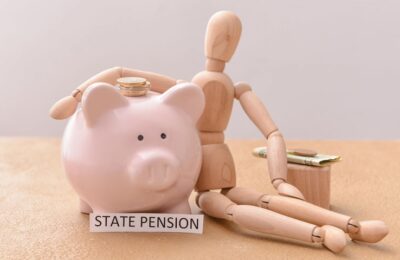There have been a lot of changes to Capital Gains Tax over the last few years. Firstly, if you sell property that’s not you’re main home, you now have to report and pay CGT within 60 days. Secondly, CGT tax-free allowances have shrunk. In the tax year 2022 to 2023, the allowance for individuals was £12,300. For 2023 to 2024 it was cut to £6,000 and it is now just £3,000. As a result, many more people will be asking themselves how to reduce CGT bills.
What do you pay CGT on?
Before we look at how you can reduce your CGT bills, it’s worth taking a quick look at what you pay the tax on.
Essentially, you pay a CGT bill when you sell a ‘chargeable asset’. You pay the tax on the profit you make. So if you bought an item such as a painting for £7,000 and then sold it for £20,000, you’d pay CGT on the £13,000 profit (minus your tax free allowance).
HMRC defines chargeable assets as:
- Personal possessions worth more than £6,000 (except your car)
- Any property that’s not your main home
- Your main home if you’ve let it out, used it for business or the grounds exceed 5,000 square metres
- Shares that aren’t in an ISA or PEP
- Business assets (such as land, buildings, plant, trademarks etc)
How much CGT do I have to pay?
The amount of CGT you pay depends on your income tax band.
Currently the rates are:
- 18% basic rate taxpayers
- 24% higher and additional rate taxpayers
There are also other rates for trustees, personal representatives of people who have died, carried interest and assets that qualify for Business Asset Disposal Relief. You can consult a full list of CGT rates here.
How can I cut my CGT bills?
If you are married or in a civil partnership, and you live together, it’s relatively simple to cut your CGT bills. This is because you both have individual tax-free allowances.
Imagine you have shares that are worth £20,000 more than you bought them for. If you sold them, you’d currently pay CGT on £17,000 of the profit (i.e. profit minus your £3,000 allowance).
However, if you give half the shares to your spouse, you can then sell each half separately. In this case, each of you would pay CGT on £7,000 of the profit (£10,000 minus the personal allowance). In other words, you’ll pay CGT on £14,000 rather than £17,000.
Can I cut my CGT bills if I’m not married?
Unfortunately, you can only cut your CGT bills using the gifting method if you are married or in a civil partnership. That said, there are other things everyone can do to reduce their CGT bills. These include:
- Staggering the sale of assets over two or more tax years. This means you can use the personal allowance for each tax year
- Offsetting losses on other assets (such as shares you’ve sold for a lower price than you bought them for)
- Making sure you’re using up your ISA allowance. You can put £20,000 per year into an ISA and not pay tax, so hold as many shares as possible in a stocks and shares ISA.
How can I get advice on reducing my CGT bills?
If you’d like help reducing your CGT bills, our Capital Gains Tax experts can help you. Simply give us a call today or contact us using the form below. We’re looking forward to being of assistance.
About Karen Jones
Having worked for one of the world’s largest accountancy firms, Karen Jones uses her tax knowledge and skills to help clients obtain substantial reductions to their tax liabilities.
With an expanding portfolio of tax clients, Karen enjoys the variety her work brings her and particularly likes working with new businesses and people. With a growing number of tax clients, she frequently faces a variety of challenges and relishes the experience she gains as she solves them.
Karen likes the THP ethos: “I like the way the team has a professional, but friendly and down-to-earth approach – it creates a productive atmosphere that benefits everyone.”
Karen’s specialist skills:
- Personal Taxation
- Tax Efficient Planning
- Trust Administration












